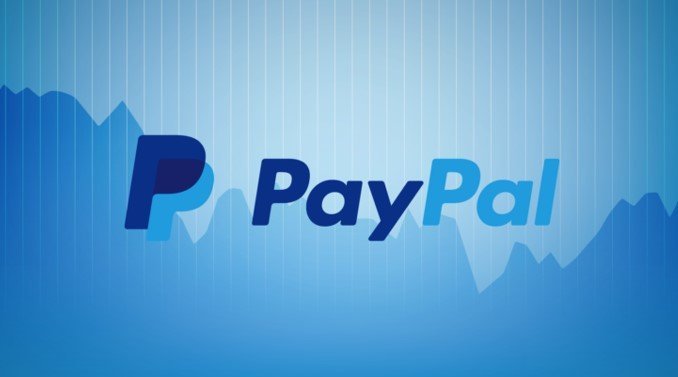Many people dream of starting their own business, but something often holds them back. Studies show that while over 30% of Americans consider entrepreneurship, most never take the first step. This hesitation isn’t random; it stems from common, powerful fears and misconceptions about what it takes to succeed. This article explores the real reasons people procrastinate and provides actionable advice on how to finally move your great idea from a thought into a reality.
Is a Lack of Money Really Holding You Back?
The old saying “it takes money to make money” often stops aspiring entrepreneurs in their tracks. While capital is necessary, you might not need the massive savings account you imagine. Many of the world’s most successful businesses started with very little funding.
The key is resourcefulness, not just resources. Instead of seeing a lack of money as a dead end, view it as your first business challenge. There are many avenues to explore for funding your new venture.
You can seek out traditional financing options like an SBA loan or other business loans from financial institutions. Don’t overlook less formal routes either, such as asking family for support or selling personal items you no longer need to generate seed money.
No matter where the funding comes from, a solid business plan is non-negotiable. Lenders and investors need to see a clear, detailed roadmap. Your plan must include a thorough budget covering all projected expenses, estimated revenue, and the cost of essential protections like business insurance. This shows you’re serious and have a plan to protect their investment.
Overcoming the Crippling Fear of Failure
Fear of failure is a deeply human emotion, but in the world of business, it can be the single biggest obstacle to success. Many people are so worried about the possibility of failing that they never give themselves the chance to succeed. But here’s the truth: failure is an unavoidable part of the entrepreneurial journey.
Every successful business owner has a story of failure, but they didn’t let it define them. They used it as a learning experience to grow stronger and smarter. Operating from a place of fear will hold you back from much more in life than just starting a business.
If the risk of starting from scratch feels too overwhelming, there are other paths to business ownership. Acquiring a franchise, for instance, offers a less intimidating route with a higher degree of built-in support.
| Feature | Starting from Scratch | Buying a Franchise |
|---|---|---|
| Business Model | Develop your own unproven model | Use a proven, established system |
| Brand Recognition | Build from zero | Instant brand awareness and trust |
| Support & Training | Learn as you go, often alone | Comprehensive training and ongoing support |
| Risk Level | Higher inherent risk | Lower risk due to proven success |
Purchasing a franchise can be a fantastic way to gain hands-on experience in running a company within a structured environment, setting you up for greater success in the long run.
Does Age Truly Matter in Entrepreneurship?
Some potential entrepreneurs believe they’ve missed their window, feeling they are too old to start something new. This concern is often tied to worries about lower energy levels or not being able to keep up with modern technology. While these are valid considerations, they are not definitive barriers.
Starting a business requires significant time and energy, regardless of your age. It also demands a willingness to learn and adapt, especially with technology. However, these are matters of commitment and mindset, not a number on a birth certificate.
Your passion and willingness to put in the work are far more important than your age. Many successful entrepreneurs started their ventures later in life, bringing years of wisdom and experience to the table.
Doubting Yourself: Are You Really Not Cut Out for This?
Sometimes, the biggest obstacle is our own self-perception. Thinking you’re “not cut out to be an entrepreneur” often comes from a place of low self-esteem rather than an honest assessment of your abilities. You can’t know if you’re suited for something you’ve never tried.
It’s true that certain traits are common among successful business leaders. However, before you count yourself out, take the time for a simple self-evaluation.
- Write down your strengths as they relate to running a business (e.g., organized, creative, good with people).
- Be honest about your weaknesses (e.g., procrastinator, dislike risk, fear of public speaking).
- Consider how you can leverage your strengths and work on your weaknesses.
As author Neil Patel notes, if you are a chronic procrastinator or refuse to step outside your comfort zone, entrepreneurship might be a difficult path. But this is something you discover through self-reflection, not by making an assumption. Give yourself a fair chance before deciding it’s not for you.
How to Create a Solid Plan to Move Forward
Thinking about starting a business can feel overwhelming, but breaking it down into small, manageable steps makes it achievable. Instead of being stuck in the “idea phase,” create a simple action plan to build momentum.
A clear plan turns a vague dream into a concrete goal. Here is a simple framework to get you started:
- Validate Your Idea: Talk to potential customers. Is there a real need for your product or service? Don’t be afraid of criticism—it’s valuable feedback.
- Conduct Market Research: Who are your competitors? What are they doing right, and where are the gaps you can fill? Understand the industry you’re entering.
- Draft a Simple Business Plan: Don’t get bogged down in creating a perfect 100-page document. Start with a one-page plan outlining your mission, target market, offerings, and basic financial projections.
- Set a Small, Achievable Goal: What is one thing you can do this week to move forward? It could be registering a domain name, designing a logo, or setting up a business social media page. Completing small tasks builds confidence.
By taking these initial steps, you begin to demystify the process and prove to yourself that you can, in fact, do this.
Frequently Asked Questions
What is the most common reason people procrastinate on starting a business?
Fear of failure and financial insecurity are two of the biggest reasons. Many people are worried about losing money or not being successful, which prevents them from taking the first step.
How can I start a business if I have no money?
Start by creating a detailed business plan to understand your exact needs. You can then seek funding through SBA loans, ask for support from family and friends, or sell personal assets to raise initial capital.
Is buying a franchise a better option than starting from scratch?
For those who are risk-averse or new to business, a franchise can be an excellent choice. It offers a proven business model, brand recognition, and a strong support system, which significantly reduces the uncertainties of a new venture.
Am I too old to start a successful business?
Absolutely not. Success in business is determined by your energy, dedication, and willingness to learn, not your age. Many entrepreneurs have launched highly successful companies later in life.
What are the most important personal traits for an entrepreneur?
Key traits include resilience, self-discipline, a willingness to step out of your comfort zone, and the ability to learn from failure. Being proactive and a good problem-solver are also crucial for navigating the challenges of business ownership.









Leave a Comment